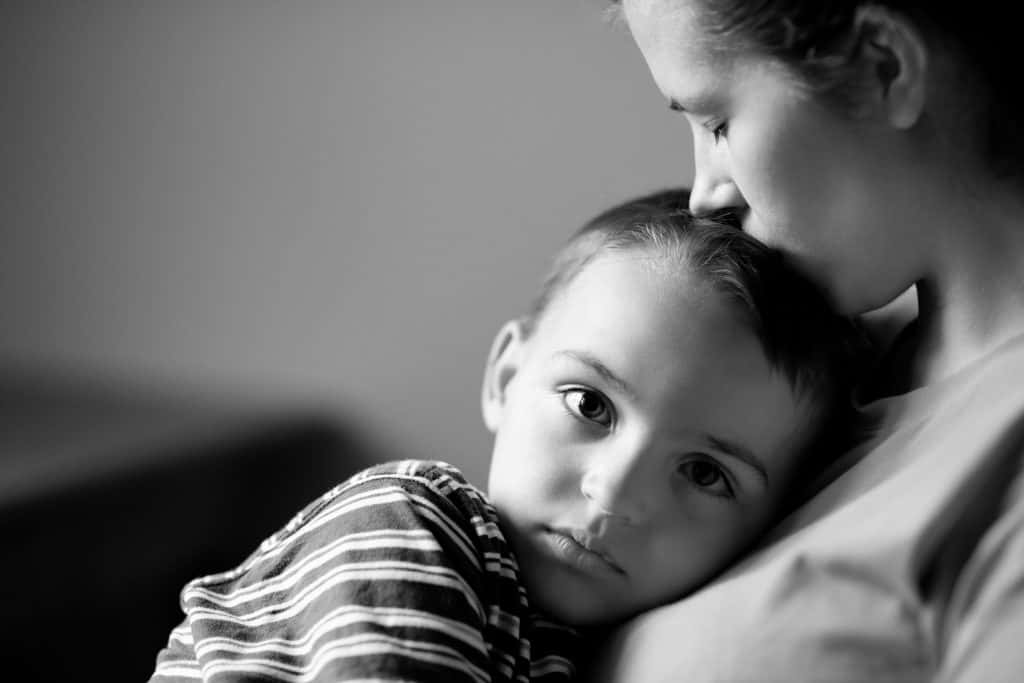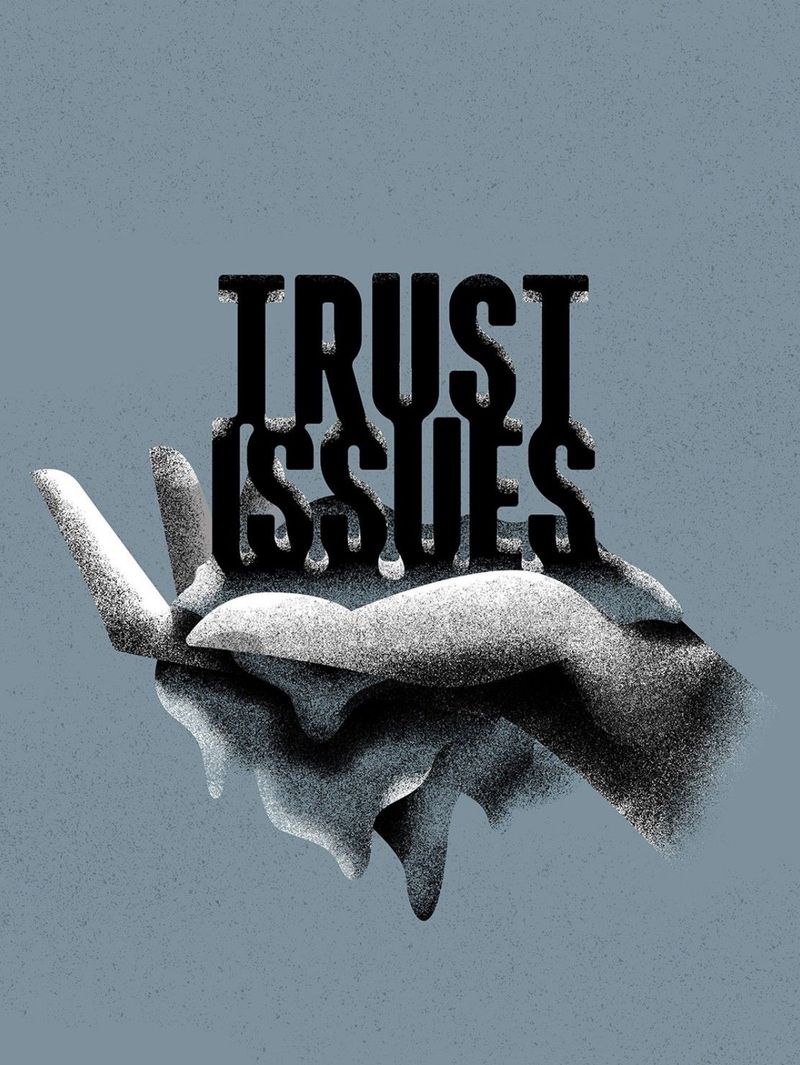Childhood experiences lay the groundwork for our adult lives, shaping our personalities, behaviors, and emotional responses. Being excluded as a child can leave lasting impressions that influence how we navigate the adult world. According to psychologists, exclusion during formative years can manifest in various ways, affecting relationships, self-esteem, and even career paths.
This exploration delves into how childhood exclusion leaves its mark on adulthood, providing insights into the challenges and transformations that may arise. Understanding these impacts helps in personal growth and better interactions with others, fostering empathy and resilience in our daily lives.
1. Low Self-Esteem

Exclusion during childhood often hampers self-esteem as adults struggle with feelings of inadequacy. These individuals may find it difficult to trust their abilities, leading to a persistent self-doubt. This lack of confidence can affect personal and professional relationships, making them feel undeserving of success or affection. Consequently, they might shy away from opportunities, believing they won’t measure up. To counteract this, engaging in positive self-talk and setting achievable goals can gradually build confidence. However, it’s crucial to recognize this pattern and seek supportive environments and relationships that nurture self-worth.
2. Difficulty Forming Relationships

Adults who faced exclusion as children often struggle to form meaningful connections. The fear of rejection may lead to social withdrawal, making it hard to establish trust. This difficulty can manifest in both friendships and romantic relationships, where vulnerability feels risky. These individuals might find themselves isolated, even amidst company. Overcoming this requires building self-awareness and slowly stepping out of comfort zones. Joining supportive groups that share interests can help, as well as practicing open communication. Reaching out for professional help may also provide strategies to nurture healthier relationships.
3. Perfectionism

Perfectionism often stems from a deep-seated fear of exclusion and rejection. As adults, individuals who were excluded as children may feel the need to prove themselves constantly. This can lead to an exhausting cycle of striving for flawlessness, fearing criticism or failure. The tendency to set unrealistic standards creates immense pressure, potentially leading to burnout. To mitigate this, it’s essential to embrace imperfections and set realistic goals. Mindfulness practices can also help in accepting oneself and recognizing personal achievements without undue harshness. Cultivating a balanced mindset fosters healthier approaches to tasks.
4. Fear of Failure

The fear of failure often lingers from childhood exclusion experiences. It creates a barrier to pursuing goals, limiting personal and professional growth. These individuals may avoid challenges, fearing judgment and rejection. This fear can stifle creativity and innovation, as the risk of failure feels daunting. Embracing failure as a learning opportunity is key to overcoming this fear. Seeking constructive feedback and celebrating small successes can gradually change this mindset. With time and support, it’s possible to develop resilience and the courage to face challenges head-on, opening doors to new possibilities.
5. Overfunctioning in Relationships

In an effort to avoid exclusion, some adults may overfunction in relationships, trying to be indispensable. This behavior stems from a fear of being left out or not being enough. By constantly striving to meet others’ needs, they may neglect their own, leading to resentment and burnout. Understanding the roots of this behavior is vital for creating healthier dynamics. Setting boundaries and prioritizing self-care can prevent overextension. Building reciprocal relationships where both parties contribute equally nurtures a balanced connection. Learning to say no and asking for help when needed also promotes relationship stability.
6. Trust Issues

Trust issues are common among adults who experienced childhood exclusion. The pain of being left out creates a lingering wariness of others’ intentions. This skepticism can hinder the development of close bonds, as they anticipate betrayal or rejection. Trust issues may also lead to self-imposed isolation, affecting emotional well-being. To rebuild trust, it’s important to engage in open dialogue and consistent actions that foster reliability. Therapy can also provide a safe space to explore these feelings. Gradually, through positive interactions, it’s possible to rebuild trust and form genuine connections.
7. Anxiety and Depression

Exclusion as a child often correlates with anxiety and depression in adulthood. The constant feeling of not belonging or being accepted can lead to mental health struggles. These feelings might manifest as chronic worry, sadness, or a sense of hopelessness. Addressing these issues requires acknowledging the impact of past experiences and seeking professional help. Therapy and support groups can provide necessary tools and understanding, fostering emotional healing. Building a supportive network of friends and family also aids in managing symptoms, helping individuals find a sense of belonging and peace.
8. Avoidance of Social Situations

Avoidance of social situations is a common response to childhood exclusion. The fear of rejection can make social interactions feel daunting, leading to isolation. This avoidance can limit personal and professional opportunities, as networking and social skills are critical in many aspects of life. Overcoming this challenge involves gradually exposing oneself to social situations and practicing social skills in a supportive environment. Therapy and social skills training can assist in easing anxiety and building confidence. As comfort grows, engaging in social settings becomes more manageable, enriching personal and professional lives.
9. Emotional Detachment

Emotional detachment is a protective mechanism developed by those who were excluded as children. It manifests as a reluctance to engage deeply with others, fearing emotional pain. While this serves as protection, it also prevents genuine intimacy and connection. Recognizing this pattern is the first step towards change. By gradually opening up and allowing oneself to be vulnerable, deeper relationships can form. Mindfulness and therapy can aid in understanding and processing emotions, fostering healthier connections. Building trust with oneself and others encourages emotional engagement without overwhelming fear.
10. Heightened Sensitivity to Criticism

Heightened sensitivity to criticism is often a result of childhood exclusion. The fear of judgment can make feedback feel like a personal attack, hindering personal and professional growth. Individuals may avoid situations where criticism might occur, limiting their opportunities. Developing resilience to criticism involves reframing feedback as an opportunity for growth. Techniques like deep breathing and self-reflection can assist in managing these feelings. Encouraging positive self-talk and focusing on personal achievements also help in building confidence. By embracing criticism constructively, individuals can transform challenges into learning experiences.
11. Feeling Unworthy

Feeling unworthy is a lingering effect of childhood exclusion. Despite accomplishments, individuals may struggle with a persistent sense of inadequacy. This feeling can sabotage success, as they may reject praise and opportunities. Addressing this involves recognizing personal achievements and valuing them. Practicing gratitude and self-compassion fosters a positive self-view. Engaging in activities that align with personal values and provide fulfillment can also boost self-worth. Building a supportive community that reinforces one’s strengths helps counteract these feelings. Over time, these strategies can nurture a sense of worthiness and achievement.

Well, hello there!
My name is Jennifer. Besides being an orthodontist, I am a mother to 3 playful boys. In this motherhood journey, I can say I will never know everything. That’s why I always strive to read a lot, and that’s why I started writing about all the smithereens I came across so that you can have everything in one place! Enjoy and stay positive; you’ve got this!

